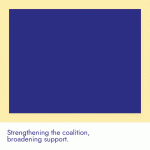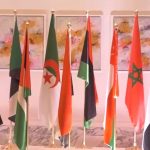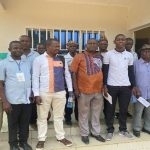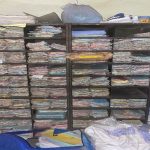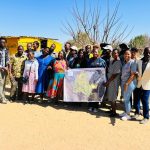The 5th GLTN Partners’ meeting held on 11-13 November 2013 at the Dutch Ministry of Foreign Affairs in The Hague, Netherlands was graced by the participation of hundred and twenty representatives from forty three GLTN Partners and various observer organisations.
High-level officials gave insightful speeches on the importance of good land governance and how to work together on its implementation. Dr. Aisa K. Kacyira, Assistant Secretary General, Deputy Executive Director of UN-Habitat and Chair of GLTN Steering Committee and Ambassador K. Paulsen, Chair of the GLTN International Advisory Board, emphasized the need of getting the right messages about land and tenure security to the world leaders. Frits van der Wal from the Dutch Ministry of Foreign Affairs drew the attention on the global relevance of the land agenda and remarked how partnership is necessary to make a change in the lives of the people, especially at the country level where positive change is most needed. Ms. Gerda Verburg, Permanent Representative of The Kingdom of The Netherlands to the Rome-based UN Agencies (FAO, WFP and IFAD) and Chair of the Committee on World Food Security, spoke about the more prominent role that private sector and civil society want and need to have to put land governance principles into practice, with the support of governments and international organisations.
Partners worked with energy and passion on paving the way for the implementation of the GLTN agenda. On the first day of the meeting, information was shared on GLTN’s current work, achievements and future plans. Snapshots of the work on the continuum of land rights, grassroots engagement, and land indicators were accompanied by an overview of GLTN’s capacity development and partnership strategies. In the afternoon session, Partners elected their Cluster representatives and developed a work plan for each of the GLTN clusters.
On day two, the criteria and modalities for the engagement of GLTN Partners at the country level were discussed. GLTN’s draft country level implementation plan was presented, and working groups on Asia-Pacific, Africa and Latin America-Caribbean unpacked the different specifics of the regions. Indications on the way forward for regional engagement and countries / initiatives identification were proposed and the day concluded with a site visit to Dutch land tool areas.
The third and final day of the meeting focused on land tools, including presentation and discussion on tools currently being developed or implemented, and priorities for the way forward. Partners and clusters discussed their interests and comparative advantages in these areas of work and identified possible tool development commitments in a cross-cluster, inter-partner fashion. Group discussions took place on interconnected tools perceived to be the most relevant for the work of the Network: STDM / Gender Evaluation Criteria / Enumeration and Land Readjustment / Land-based Financing / City Wide Slum Upgrading. A lively discussion took place on capacity development.
A welcoming cocktail, a Partners’ dinner and lots of opportunities for bilateral discussions and socialization made the Meeting and enjoyable and productive forum.

